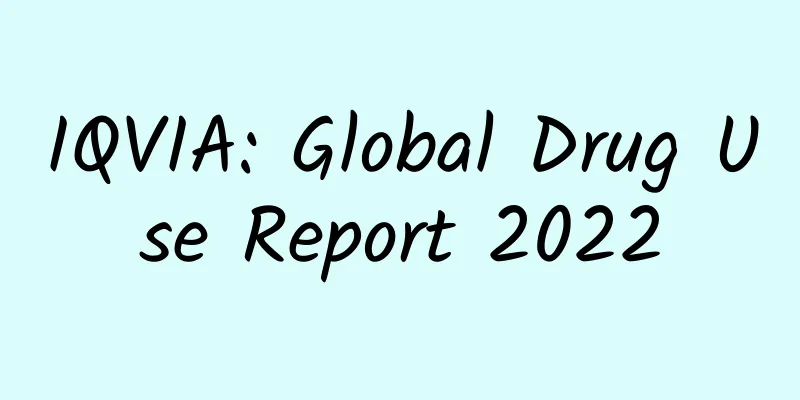Taking calcium supplements every day, still lacking calcium? These habits are quietly "stealing" your calcium

|
Now more and more middle-aged and elderly people have begun to pay attention to calcium supplementation in order to prevent osteoporosis. Seafood, milk, soy milk, bone soup... various methods have been used in turn. However, calcium supplementation not only has little effect, but may also cause serious consequences. Aunt Sun has been suffering from leg cramps in the middle of the night recently. She believes that this is caused by calcium deficiency, and the first thing to do is to supplement calcium. In addition to eating more calcium-containing foods, she also bought calcium tablets on her own. Unexpectedly, after taking the supplements for a period of time, Aunt Sun suffered a heart attack due to vascular calcification caused by the calcium supplements. Doctors warn that blindly supplementing large amounts of calcium can lead to increased blood calcium levels and cause vascular calcification. Once the calcified blood vessel is a coronary artery, it will lead to a "glass heart" and increase the risk of cardiovascular diseases such as coronary heart disease and myocardial infarction. Studies have found that taking 500 to 1000 mg of calcium supplements can instantly increase blood calcium to the critical range of hypercalcemia . If calcium supplements are taken for a long time, the blood calcium concentration will repeatedly reach a peak. Excessive blood calcium concentration will accelerate the formation of deposits in the arteries and cause hardening of the blood vessels, thereby causing cardiovascular disease. Calcium is a metallic element in nature and an indispensable nutrient for the human body. It is the most abundant mineral in the human body, accounting for 1.5% to 2% of body weight, and has extremely important physiological functions. 99% of the calcium in the human body is distributed in bones and teeth . It is the basic mineral that constitutes bones and teeth. Therefore, the role of calcium in the human body is inseparable from the health of bones and teeth. As we age, the body's need for calcium changes. Due to calcium loss and incomplete replenishment and absorption, calcium deficiency often occurs, leading to symptoms such as muscle cramps, limb numbness, and even osteoporosis. Relevant surveys have found that Chinese people consume about 400 mg of elemental calcium through their diet every day, which is only 50% of the calcium intake recommended by the Chinese Nutrition Society. Calcium deficiency is common among Chinese people, and the problem is particularly prominent among the elderly. However, many people know that they are calcium deficient, but do not know how to supplement calcium. In addition, some inadvertent habits in life will affect the body's absorption and utilization of calcium, causing bones to become brittle faster and increasing the risk of osteoporosis. Come and see if you have these "bad" habits that delay the absorption of calcium supplements. 01 High-salt diet Eating too much salt can lead to calcium loss. Studies have found that excessive salt intake will affect the body's full absorption of calcium in food, and a high-salt diet will lead to more calcium loss in human bones. Osteoporosis, bone atrophy and fractures that women are prone to are all related to excessive salt intake. Nutrition experts at the University of Washington in the United States also found through a study of a group of menopausal women that when women ate more than 4,800 mg of salt a day, the components of bone breakdown in their urine increased by 6% compared to when they only ate 1,200 mg of salt a day. Generally speaking, the human kidneys excrete used sodium (the main component of salt) every day, but for every 1000 mg of sodium excreted, 26 mg of calcium is consumed. The more sodium the human body excretes, the more calcium it digests, which will eventually affect the calcium necessary for bones. It is recommended that adults should develop a light eating habit, avoid eating high-salt foods such as pickles, salted duck eggs, bacon, etc., and try to control daily salt intake to 5g or less . In addition, you also need to pay attention to the hidden salt in snacks, processed foods, and condiments . 02 High-protein diet A moderate intake of protein is beneficial to human health, but if you consume too much protein, it will lead to the loss of calcium in the body, affect calcium absorption, and be detrimental to bone development. Because there is too much protein, it forms saponification with calcium in the intestines and is not conducive to calcium absorption. It can easily cause excessive intake of sulfur-containing amino acids. Over time, it will lead to osteoporosis and cause discomfort such as soreness in the waist and knees, and pain in the waist and legs. In addition, excessive protein entering the human body will increase the calcium and phosphorus in the body, causing kidney stones. At the same time, excessive protein will also cause calcium and phosphorus loss, leading to osteoporosis. Generally speaking, it is recommended that adults eat 40 to 75 grams of seafood, 40 to 75 grams of livestock and poultry meat, and 40 to 50 grams of eggs per day. 03 Love carbonated drinks, coffee and strong tea Some people don't like drinking water, but prefer coffee or strong tea. Some even drink carbonated drinks as water. If you drink these drinks in large quantities for a long time, it may cause calcium deficiency in the body and even osteoporosis. Because coffee contains caffeine, tannic acid, fat, cellulose, protein, etc., among which tannic acid, also known as tannic acid, can form calcium tannate when combined with calcium, which cannot be absorbed by the body, thus causing calcium to be excreted from the body and causing calcium loss. In addition, caffeine has a good diuretic effect, which will cause you to go to the toilet more frequently, thereby increasing the loss of a small amount of calcium. Fat and cellulose can also combine with calcium to affect calcium absorption, thereby causing calcium loss. If you drink coffee for a long time, it is easy to cause calcium deficiency in the body, especially for postmenopausal women and elderly men. Drinking large amounts of carbonated beverages can cause the carbonate to combine with calcium to form insoluble calcium carbonate, which can lead to calcium loss and subsequent symptoms such as pain and hypocalcemia. In addition, if you drink a lot of strong tea for a long time, it will affect the body's absorption of calcium and may also affect the body's digestion. It is recommended not to drink carbonated drinks as much as possible, and it is advisable to choose light tea and try not to drink strong tea. The recommended daily coffee intake should be controlled within 2 cups (400 ml) to reduce calcium loss. 04 Long-term smoking and drinking The nicotine contained in tobacco can reduce and contract the blood vessels that nourish the bones. The ischemia of the bone blood circulation will cause a decrease in new bone formation, which can cause osteoporosis. At the same time, nicotine can affect the gastrointestinal absorption of calcium. Long-term and heavy drinking can lead to calcium loss , as alcohol can irritate the gastrointestinal mucosa, thereby hindering the absorption of calcium in the gastrointestinal tract. In addition, long-term and heavy drinking may significantly affect the absorption and synthesis of vitamin D , which in turn may hinder the absorption and utilization of calcium, and easily induce osteoporosis. 05 Being sedentary Exercise is the key to maintaining bone health because human bones are in a dynamic metabolic process. Stimuli such as exercise will accelerate bone reconstruction and enhance calcium utilization. If you do moderate aerobic exercise on a regular basis, such as walking, dancing, swimming, etc., you can increase bone load and promote calcium absorption. If you sit for a long time and are not stressed, the calcium in the blood will not enter the bones. Instead, the bones will release calcium, leading to a decrease in bone density and an increased risk of fractures. How to supplement calcium scientifically? 1 Choose the right calcium-rich foods There are many kinds of foods rich in calcium, such as milk and dairy products, dried shrimps, dried shrimps, milk, soy products, black sesame, etc. are all rich in calcium. Among them, milk and dairy products are the most ideal sources of calcium supplementation . Not only are they high in calcium content, but the calcium-phosphorus ratio in milk is moderate , which can promote the digestion and absorption of calcium by the human body. At the same time, milk is rich in vitamin D , which is also an important factor in promoting better calcium absorption. In addition, soy products are also a good source of calcium . Calcium coagulants are added during the production and processing of soy products, so tofu, tofu skin, dried tofu and other soy products have a high calcium content. In addition, dried shrimp is extremely rich in calcium, containing 991 mg of calcium per 100 grams . The calcium content is higher than that of milk, making it a good source of calcium supplement. However, it should be noted that although dried shrimp is high in calcium, it is also high in salt. Every 100 grams of dried shrimp contains more than 5,000 mg of sodium, which is approximately equivalent to 12.6 grams of salt , far exceeding the daily salt intake recommended by the "Dietary Guidelines for Chinese Residents". Moreover, dried shrimp is difficult to digest and absorb by the human gastrointestinal tract, and its calcium supplementation effect is far less ideal than that of dairy products. 2 Choose a scientific cooking method Oxalic acid is a natural organic acid that often appears in plant foods, such as dark green vegetables, fruits, grains, tea, nuts, chocolate, etc. Oxalic acid, phytic acid and other substances in food are major factors that inhibit calcium absorption. Therefore, scientific and reasonable cooking methods can be used to minimize the effects of phytic acid and oxalic acid on calcium. Most vegetables contain oxalic acid, especially spinach, winter bamboo shoots, wild rice stem, edamame, onion, etc. When these ingredients are eaten with calcium-rich foods, they are more likely to form insoluble calcium oxalate salts, which greatly reduces the absorption rate of calcium. This is also the reason why some vegetarians are prone to rickets. If you want to eat foods with high oxalic acid content, you can reduce the oxalic acid content by blanching them in water or stir-frying them over high heat before cooking. Research data show that the method of blanching in boiling water can reduce about 60% of oxalic acid, and stir-frying with high heat and rapid oil can also remove about 20% of oxalic acid ; an acidic environment is conducive to the dissolution and absorption of calcium, so you can add more vinegar and drink more yogurt during the cooking process. Phytic acid is generally found in cereal foods. The impact of phytic acid on calcium can be reduced through fermentation. Fermentation can produce phytase to decompose phytic acid. Therefore, when eating cereal foods, you can eat more fermented pasta. In addition, it is also important to note that when eating foods that contain more tannins, such as persimmons, oranges, and peaches, do not take calcium supplements at the same time . 3 Vitamin D supplementation Vitamin D can promote the absorption of calcium , so you can consume more foods rich in vitamin D in your daily diet, such as fish, animal liver, egg yolk, cod liver oil, etc. You can also promote the synthesis of vitamin D in the human body by sunbathing. Vitamin D is a vitamin that is closely related to light and ultraviolet rays. Light can promote its synthesis, but it should be noted that when supplementing calcium through sunbathing, it should be done outdoors. Due to the glass blocking ultraviolet rays indoors, the effect of synthesizing vitamin D is not ideal. At the same time , the sunbathing time should not be too long, 15 to 20 minutes each time is enough to avoid sunburn. 4 Taking calcium supplements correctly Calcium supplements are generally divided into three types, namely inorganic calcium, organic acid calcium and organic calcium. When taking calcium supplements, one should not simply judge the effectiveness of calcium supplementation based on the calcium content, but should choose calcium supplements based on the calcium absorption rate. At the same time, it should be noted that the dosage should not exceed 500 mg each time to prevent a sudden increase in blood calcium concentration. Pay attention to the time of taking the medicine. It is generally recommended to take it after meals , because after meals, gastric acid secretion is most sufficient and the calcium absorption rate is the highest in an acidic environment. Drink more water when supplementing calcium . The absorption rate of calcium supplements depends in part on the solubility of calcium. Drinking plenty of water increases the solubility of calcium to a certain extent. In addition, when taking calcium supplements, do not take them at the same time with elements such as zinc and iron , because in the human body, divalent ions such as calcium, iron, and zinc are transferred and absorbed through the calcium ion channels on the cell membrane. It can be said that they take the same path; when crowded on one path, some "people" will be "kicked" off. Therefore, calcium, iron, and zinc should be taken at least 2 to 3 hours apart . References: [1] Jiang Yue. Blind calcium supplementation may cause blood vessels to become “glassy”[J]. Family Science·New Health, 2023, 9:39. [2] Hou Tingting. Analysis of misunderstandings and methods of calcium supplementation[J]. Modern Food, 2021, 15:99-101. [3] Hunan Provincial People's Hospital. How many calcium supplement experts do you know? [J]. Tutoring World, 2023, 34: 22-23. [4] Li Jingya. Dried shrimp is not the best calcium supplement food[J]. Kaijuanyi (Seeking Medical Advice), 2023, 9:37. [5] Tao Shixiu. Not taking calcium supplements can easily lead to stones, and calcium oxalate is the culprit[J]. Health Monthly, 2023, 5:422. [6] Lu Jin. How to scientifically supplement calcium for the elderly[J]. Family Medicine, 2023, 7:16-17. -END- Note: Original article, original pictures, please contact for authorization if you want to reprint. |
<<: The New Year is full of flavor. Teach you how to cook perfect dumplings
>>: Can elastic waves have spin?
Recommend
Android application memory leak analysis and improvement experience summary
Preface Through the memory leak detection and imp...
Can sweating also cause sunburn? 5 preventions and 3 treatments to help you solve the problem of sunburn
The scorching sun and high temperatures are a gre...
The first brain-computer interface chip implanted in humans! Has "The Matrix" become a reality?
On January 30, 2024, Elon Musk posted a message o...
Can bananas cure constipation? The fruit that really relieves constipation is...
If you average a week Fewer than 3 bowel movement...
Should I give up wireless charging to avoid iPhone battery aging?
[[222675]] For smartphones, the convenience of wi...
Solid info! 7 marketing tactics that small and medium-sized businesses must know
Sale! Price reduction! The annual “Double Eleven”...
After the vernal equinox on Earth, let’s take a look at what the vernal equinox is like on other planets.
During the spring equinox, many places in my coun...
From getting started to giving up, an article reviews the history of Google tablets
After nine years of ups and downs, Google finally...
Tianya is listed on the New Third Board: the last glory and splendor of BBS
[[143845]] Since the advent of mobile Internet, T...
Will Samsung become the next Sony?
Recently, there is news that Sony Mobile will sig...
Macheng SEO: The impact of update frequency on website SEO results
Macheng SEO can say with certainty that the high ...
Einstein's brain has 73% more matter than an average person! Scientists reveal the secret of a smart brain
When you mention the word "genius", who...
The bond between fish and water is everlasting. Let’s talk about the sense of mutual assistance between users and operators!
Households are water, and fish can never live wit...
Attracting new users: 10 common channel classifications and 100 channel summaries for APP promotion
Nowadays, it is becoming more and more difficult ...
Do Java arrays have to be initialized before they can be used?
An array is a composite structure provided by mos...









